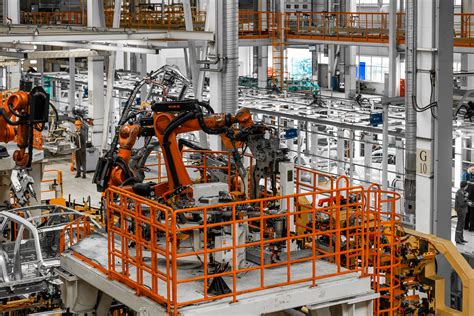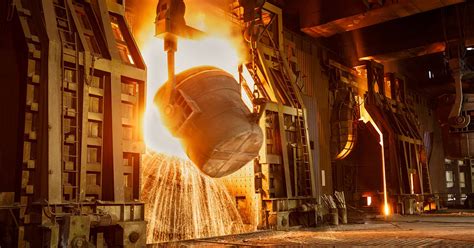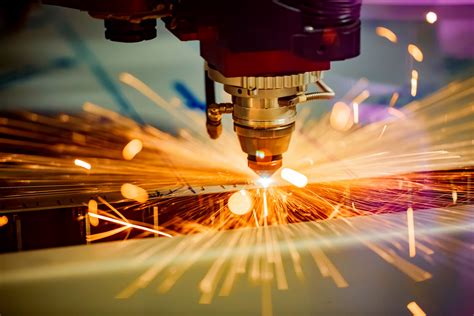date metal fabrication technology The future of metal fabrication is characterized by innovation and adaptability. As the trends above continue to unfold, metal manufacturing will become more efficient, sustainable, and versatile, shaping the world in new and exciting ways. Check out our unique metal house numbers selection for the very best in unique or custom, handmade pieces from our signs shops.
0 · technology in metal manufacturing
1 · technology in metal making
2 · new technologies in metal manufacturing
3 · new technologies in metal fabrication
4 · metal manufacturing trends
5 · metal manufacturing industry
6 · metal fabrication trends
7 · metal fabrication industry
To accommodate the increasing volume of work opportunities available to SMART sheet metal members, SMART established a sheet metal job bank to assist interested members looking to travel for work.
Metal fabrication is poised for a bright future due to its innovative and efficient approach. Its balance between new techniques and traditional practices ensures a modern . Automation equipment like robotic total stations, multi-access cutting and milling machines, and computer numerical control (CNC)-driven devices have all advanced the metal fabrication industry by allowing for more .
At first glance, the technology seemed far away from metal fabrication. But in the adjacent hall in Chicago’s McCormick Place, in the far front corner, EWI showcased tele-welding technology, allowing expert welders to .We’ll explore the fundamentals of common metal fabrication processes such as forging, casting, extrusion, machining, stamping and punching operations.
The future of metal fabrication is characterized by innovation and adaptability. As the trends above continue to unfold, metal manufacturing will become more efficient, sustainable, and versatile, shaping the world in new and exciting ways.In the realm of steel fabrication, advancements in cutting-edge technology are revolutionizing the way steel structures are crafted. From precision cutting to seamless welding and intricate forming, the steel fabrication industry is .
Integrating automation and robotics into traditional fabrication processes is one of the most significant transformations to date. Metal fabrication, historically labor-intensive, is witnessing a paradigm shift towards automation-driven efficiency. With laser cutting, 3D printing and other new fabrication methods introduced in the industry, the demands are undeniably changing. Let’s take a closer look at the technologies and trends that.
In recent years, there have been several trends and technologies in metal fabrication that have emerged to change the face of this industry. These include automation and robotics, 3D printing, computer-aided design and manufacturing, additive manufacturing, advanced materials, and the integration of IoT and Industry 4.0 technologies.
Metal fabrication is poised for a bright future due to its innovative and efficient approach. Its balance between new techniques and traditional practices ensures a modern-day solution. . it employs state-of-the-art technology, allowing for more complex designs and refined products with tighter tolerances and higher strength-to-weight ratios . Automation equipment like robotic total stations, multi-access cutting and milling machines, and computer numerical control (CNC)-driven devices have all advanced the metal fabrication industry by allowing for more precise measurements, fabrication cuts and bends, and installation tolerances. It’s a complicated time for metal manufacturers. The industry faces wage pressures and a skills gap, but metal fabrication technology continues to march forth faster than ever. At first glance, the technology seemed far away from metal fabrication. But in the adjacent hall in Chicago’s McCormick Place, in the far front corner, EWI showcased tele-welding technology, allowing expert welders to control and teach robotics from a remote location.
We’ll explore the fundamentals of common metal fabrication processes such as forging, casting, extrusion, machining, stamping and punching operations.

metal batman 3d lunch box
technology in metal manufacturing

The future of metal fabrication is characterized by innovation and adaptability. As the trends above continue to unfold, metal manufacturing will become more efficient, sustainable, and versatile, shaping the world in new and exciting ways.In the realm of steel fabrication, advancements in cutting-edge technology are revolutionizing the way steel structures are crafted. From precision cutting to seamless welding and intricate forming, the steel fabrication industry is experiencing a dynamic shift propelled by innovative techniques.
Integrating automation and robotics into traditional fabrication processes is one of the most significant transformations to date. Metal fabrication, historically labor-intensive, is witnessing a paradigm shift towards automation-driven efficiency. With laser cutting, 3D printing and other new fabrication methods introduced in the industry, the demands are undeniably changing. Let’s take a closer look at the technologies and trends that. In recent years, there have been several trends and technologies in metal fabrication that have emerged to change the face of this industry. These include automation and robotics, 3D printing, computer-aided design and manufacturing, additive manufacturing, advanced materials, and the integration of IoT and Industry 4.0 technologies.
Metal fabrication is poised for a bright future due to its innovative and efficient approach. Its balance between new techniques and traditional practices ensures a modern-day solution. . it employs state-of-the-art technology, allowing for more complex designs and refined products with tighter tolerances and higher strength-to-weight ratios .
Automation equipment like robotic total stations, multi-access cutting and milling machines, and computer numerical control (CNC)-driven devices have all advanced the metal fabrication industry by allowing for more precise measurements, fabrication cuts and bends, and installation tolerances. It’s a complicated time for metal manufacturers. The industry faces wage pressures and a skills gap, but metal fabrication technology continues to march forth faster than ever. At first glance, the technology seemed far away from metal fabrication. But in the adjacent hall in Chicago’s McCormick Place, in the far front corner, EWI showcased tele-welding technology, allowing expert welders to control and teach robotics from a remote location.
We’ll explore the fundamentals of common metal fabrication processes such as forging, casting, extrusion, machining, stamping and punching operations.The future of metal fabrication is characterized by innovation and adaptability. As the trends above continue to unfold, metal manufacturing will become more efficient, sustainable, and versatile, shaping the world in new and exciting ways.
In the realm of steel fabrication, advancements in cutting-edge technology are revolutionizing the way steel structures are crafted. From precision cutting to seamless welding and intricate forming, the steel fabrication industry is experiencing a dynamic shift propelled by innovative techniques.
Integrating automation and robotics into traditional fabrication processes is one of the most significant transformations to date. Metal fabrication, historically labor-intensive, is witnessing a paradigm shift towards automation-driven efficiency.
technology in metal making
metal beams in house

Get information, directions, products, services, phone numbers, and reviews on United Mechanical Metal Fab in Hayward, undefined Discover more Fabricated Plate Work (Boiler Shops) companies in Hayward on Manta.com
date metal fabrication technology|metal manufacturing industry